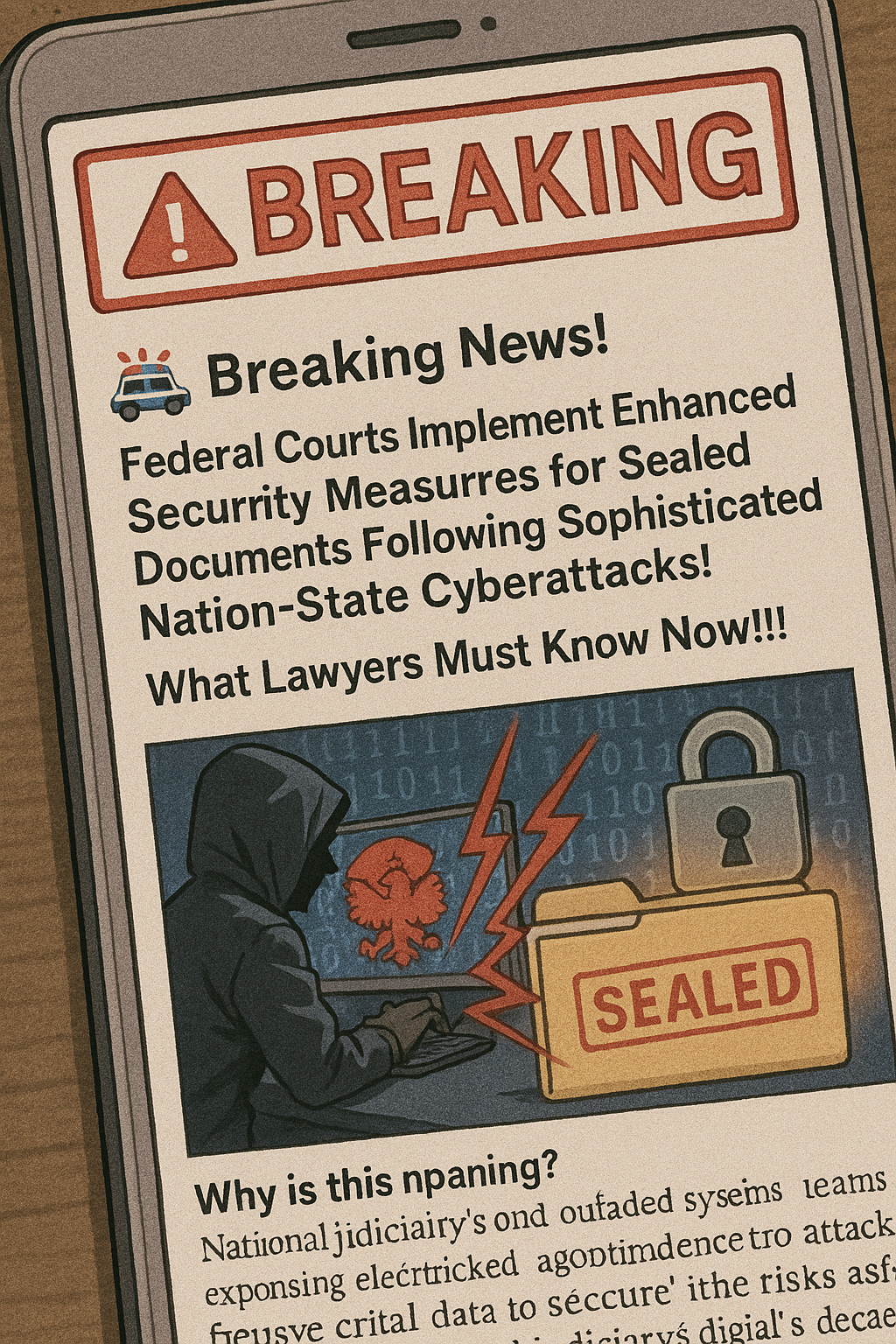🚨 Breaking News! Federal Courts Implement Enhanced Security Measures for Sealed Documents Following Sophisticated Nation-State Cyberattacks! What Lawyers Must Know Now!!!
/Federal courts have launched sweeping new protocols restricting electronic access to sealed documents after a widespread cyberattack linked to Russian actors exposed critical vulnerabilities in the federal judiciary’s decades-old digital infrastructure. As previously reported here, the breach compromised highly confidential information—such as sealed indictments and informant data—across numerous districts, prompting courts to eliminate electronic viewing of sealed filings and require paper-only procedures for sensitive court documents.
what do lawyers need to do as Federal courts respond to cyber attacks?
Why is this happening?
Nation-state cyber threats and outdated systems left federal courts open to attack, as repeatedly warned by The Tech-Savvy Lawyer.Page. The blog has consistently flagged the risks associated with aging technology, weak authentication, and the need for law firms to adopt advanced cybersecurity practices. The recent breach brings these warnings to life, forcing immediate changes for all legal professionals.
What lawyers must do:
Attorneys must now file sealed documents according to new court protocols—usually paper filings—and cannot access them electronically. This transformation demands lawyers take proactive steps to secure confidential information at all times, in line with ABA Model Rule 1.6. Practitioners should review The Tech-Savvy Lawyer.Page for practical tips on ethical compliance and digital preparedness, such as those featured in its “go bag” guide for legal professionals.
Most importantly, consult your local federal court’s website or clerk for the latest procedures, as requirements may vary by district. Safeguarding client confidentiality remains central to legal ethics—stay vigilant, stay informed, and stay tech-savvy.










